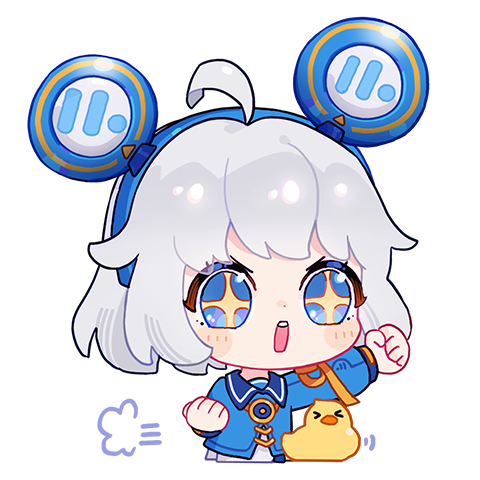Beginners Guide for OUTERPLANE
Smilegate Holding's latest new venture is none other than the hyped OUTERPLANE, a 3D turn-based RPG that is set in the fantasy land of Mirsha where all types of heroes meet and greet each other. Smilegate's previous game, Epic Seven, has become one of the biggest hits in the anime turn-based genre. Naturally, it seems questionable for the developer to release another competitive title in the same genre. But Outerplane has some clear distinctions than the former Smilegate RPG as the game offers a more intense combat environment and a plethora of new heroes to collect and play with.
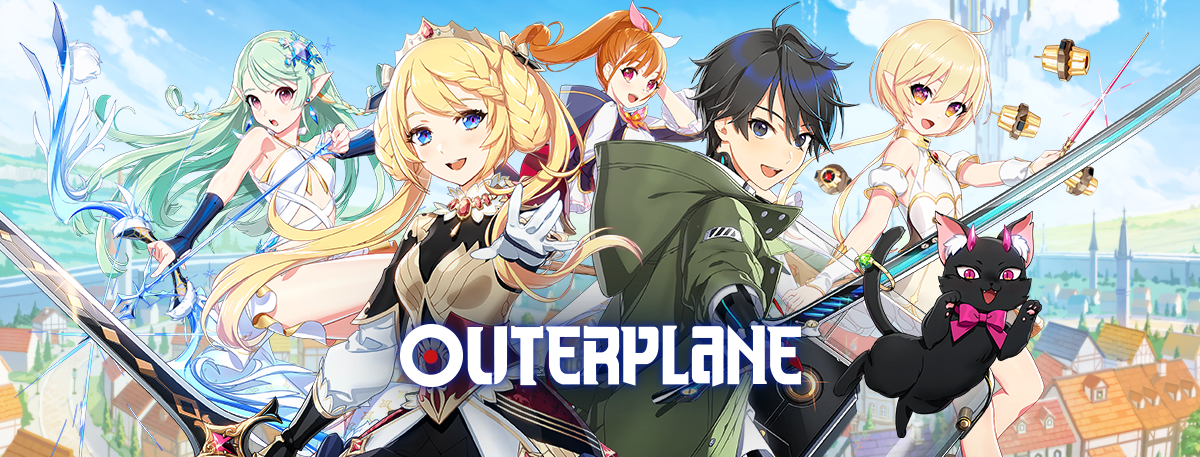
To read more guides for OUTERPLANE, please review the list below:
Beginners Guide for OUTERPLANE
In this beginner's guide for Outerplane, we will be trying our best to explain all the basics of the game that are required to understand in order to make efficient and fast progression. We will be assuming you are a new player as it's a beginner's guide. We will also be listing the best ways to power up your heroes as you play the game.
1. Combat Mechanics
Starting with the basics, players are required to make a formation of 4 unique heroes in their team before the match even begins. Players are required to judge the enemies they are fighting and bring heroes that can counter those of the enemies. The classic element system can also be seen in Outerplane where each hero is assigned an element. Now, each element is either stronger or weaker against a different element. Light and Dark elements are neutral against Fire, Water, and Wind elements but are stronger/weaker against each other.
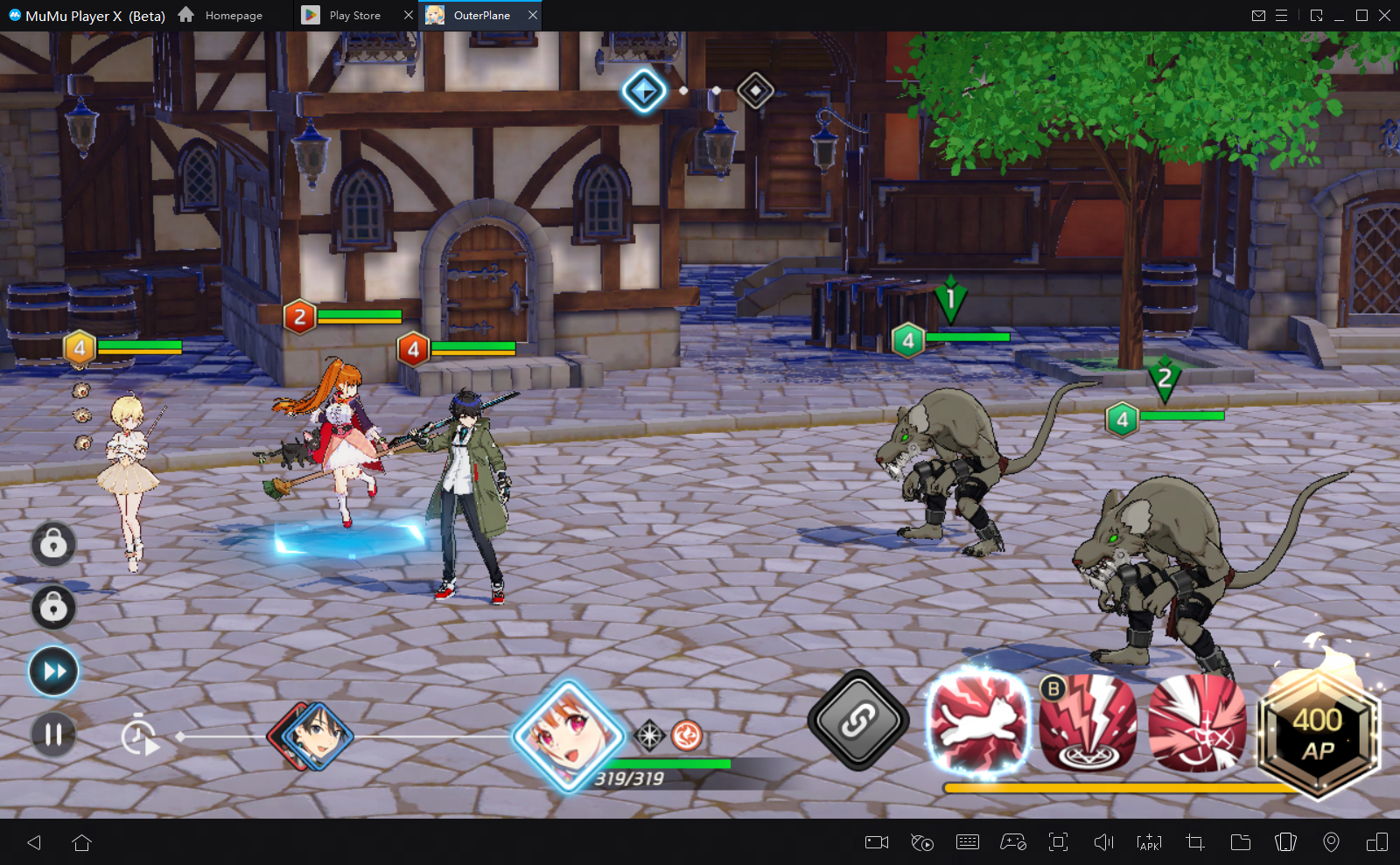
One of the most unique aspects of combat system is the skill chain system where players earn skill gauge points depending on the nature of their heroes. For example, Defender heroes earn skill gauge points when getting hit by enemies. Marksmen get skill gauge points when hitting enemies. Healers gain skill gauge points when healing allies. Mages get skill gauge points when using their Burst skills. Players can use the Chain Skills to launch powerful attacks which start with 1 hero and finish with 1 hero. These Chain Skills usually land in a Break state for the enemy. During the Break state, the enemy is not able to move and take more damage from all sources as well.
2. Currencies
Much like understanding combat mechanics is important to succeed in winning battles, understanding the different types of currencies is important to not waste them. These currencies which we are going to talk about are called the 3 "major" currencies and the judicious usage of them will definitely result in improved rate of progression. These major currencies are Gold, Stamina and Ether.
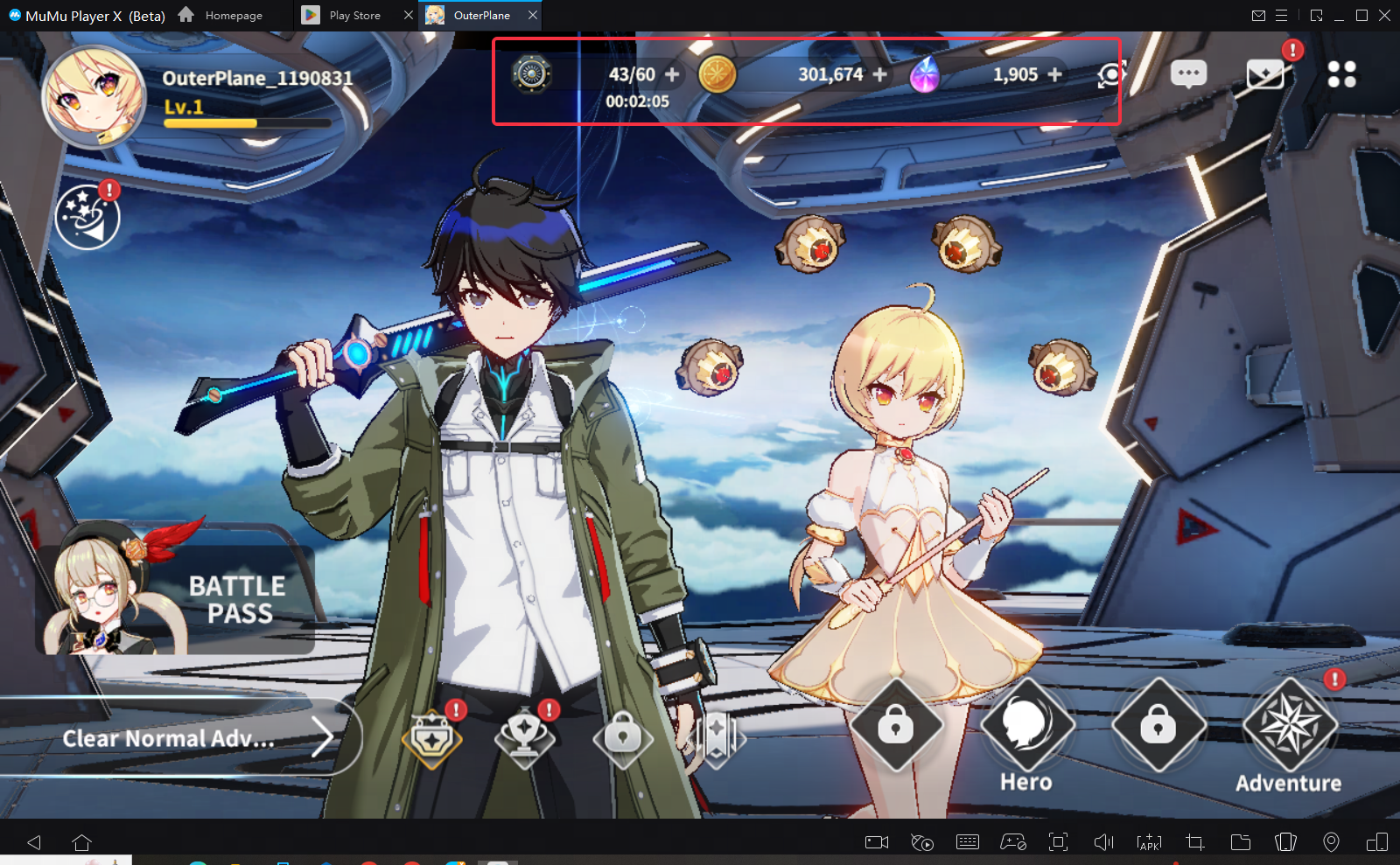
- Gold is one of the 3 main currencies in Outerplane. Gold is pre-dominantly used only for upgrading heroes as well as to upgrade your gear. Gold is used in abundance while upgrading your gear to take it to a higher level. Similarly, Gold is also used when upgrading the levels of your hero or upgrading the skill of your hero. Gold is primarily obtained in abundance from the Gold Dungeon.
- Stamina is the playtime currency of Outerplane as it was only used to play the different content of the game. All the PvE content of Outerplane requires a certain amount of Stamina to be able to play. Stamina is an AFK currency wherein, it recharges at a specific rate over time. However, players can also purchase more Stamina using their Ether or Friendship points.
- Ethers – Free Ether and Paid Ether. Free Ether can be obtained through log-in rewards, pre-registration rewards, daily and weekly missions, achievements, first time story clear rewards, in-game events, and developer compensation mails. Paid Ether can only be obtained by purchasing packs via microtransactions. As a rule of thumb, Free Ether will always be used first. Ether is majorly used only for summoning heroes from the Rate-Up recruitment banner and Normal recruitment banner.
3. Summoning System
The games are quite strategical while the flow of the combat is super smooth, much like Epic Seven itself. However, the difference between the 2 games arises and is shown quite abruptly in the summoning systems. Much like other gacha games, the sole purpose of the summoning system is to give players new and strong heroes to recruit and add to their formations. Naturally, these heroes are available at different probabilities depending on the type of summoning banner. Currently, the main banners that a new player include Start Dash Banner, Laplace Recruit Banner and Normal Recruit Banner.
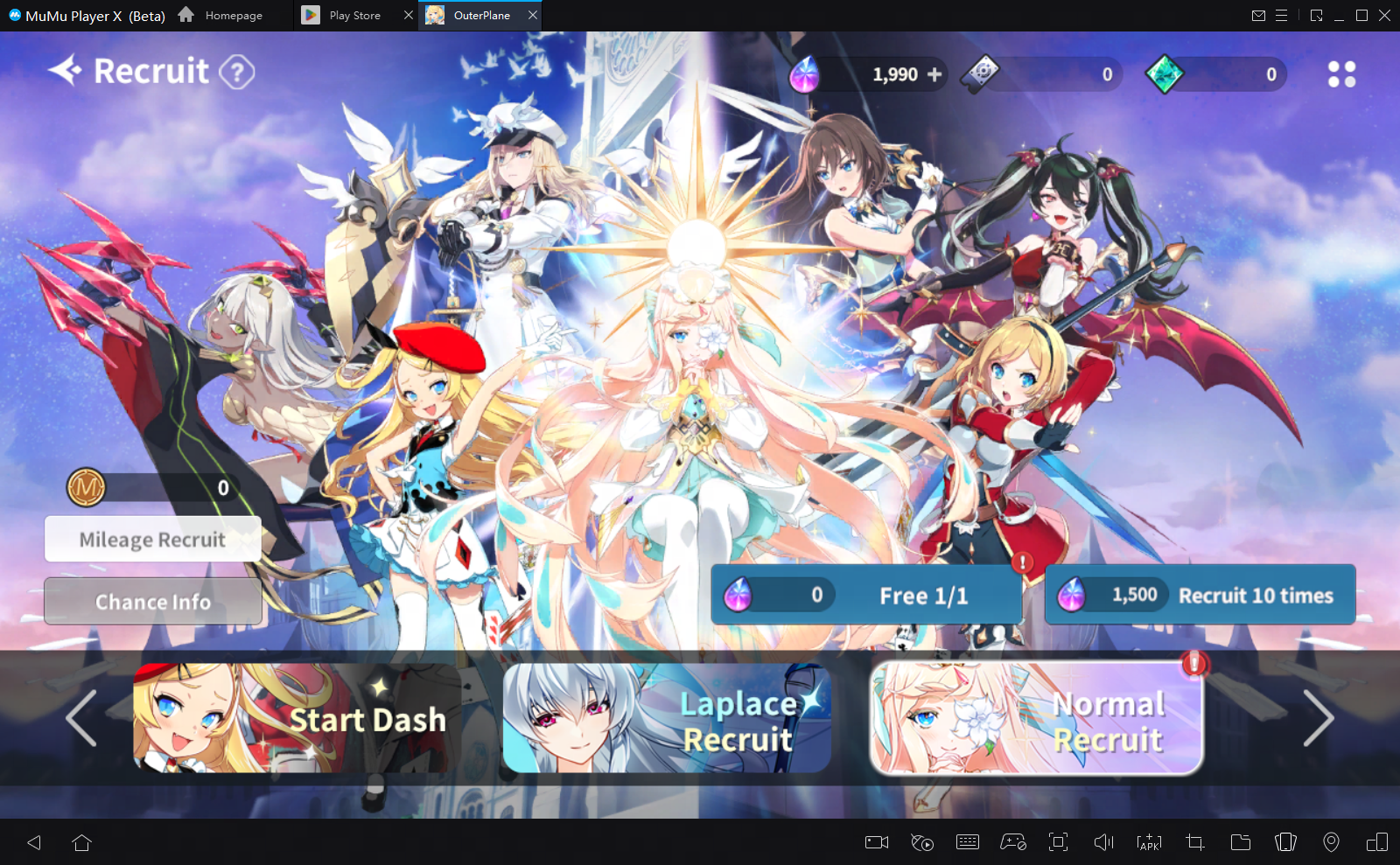
Players will get tons of summoning currencies at the start of their journey in Outerplane from the pre-registration rewards as well as global launch rewards. We would highly recommend players to spend their Ether in the rate-up recruitment banner for a chance to get the latest hero in the game. Further, we recommend players do their Infinite recruitment summons after doing the rate-up summons to avoid getting duplicate heroes.
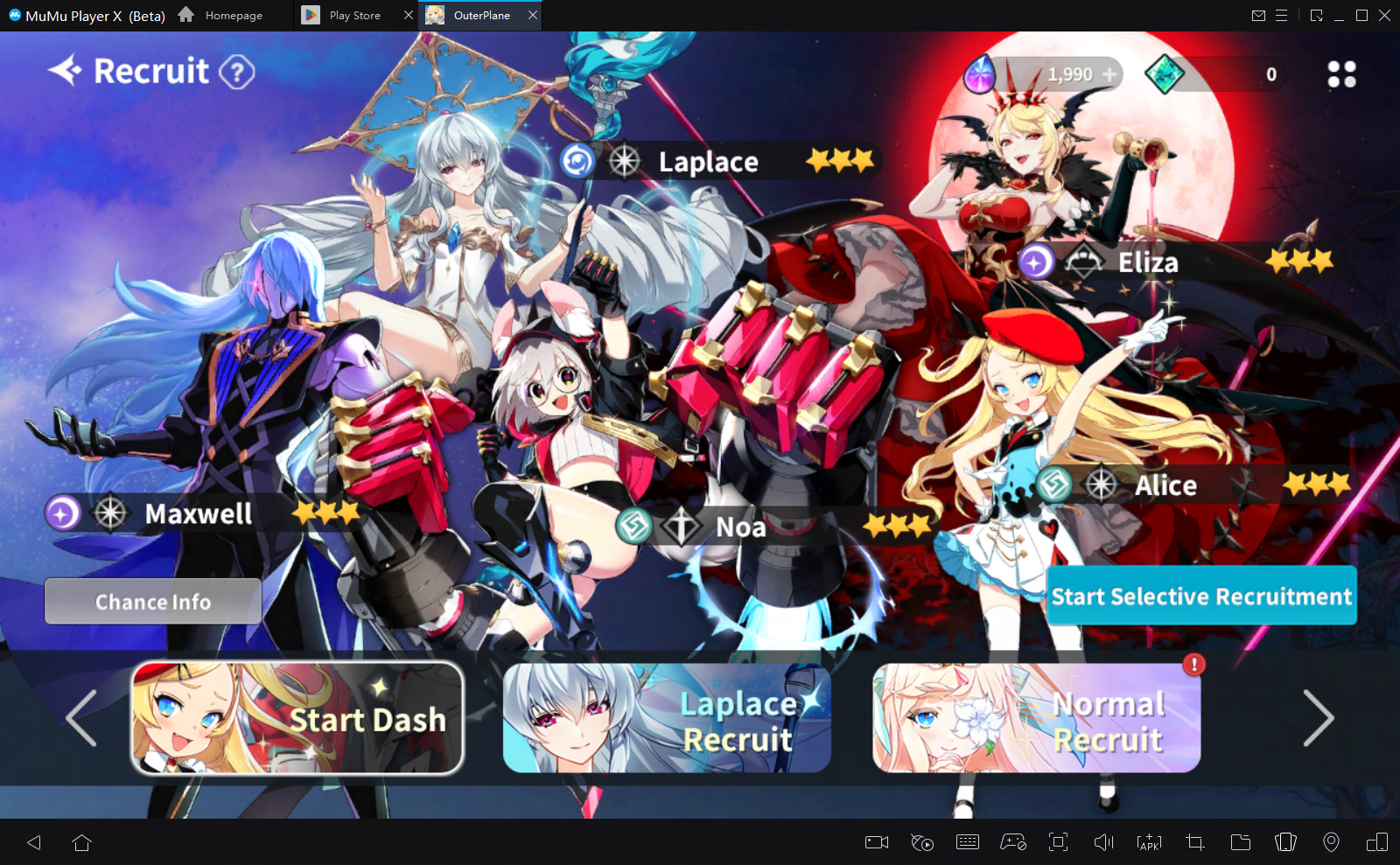
Outerplane has an intensive shard system in place that allows players to grade up their heroes by collecting a certain amount of shards of them. But getting those shards early on hampers your progress as you won't have enough variety of heroes to deal with the tough content. In Outerplane, the base rarity of the hero determines their probability of being obtained from the recruitment banner. In the system, the highest rarity of heroes has the lowest probability of being summoned while the lowest rarity of heroes has the highest probability of being summoned. And Players require different types of summoning currencies to summon on different recruitment banners.
4. Strengthen Your Heroes
Outerplane is a turn-based RPG that features a ton of strategic elements. However, no matter what strategy you may deploy, it will all fail if your heroes themselves and weak and drop dead easily. This is where you should consider making them stronger in order to progress more effectively, saving both your time and resources. Players can access their heroes by clicking on the Heroes icon located at the bottom right-hand side of the main menu.
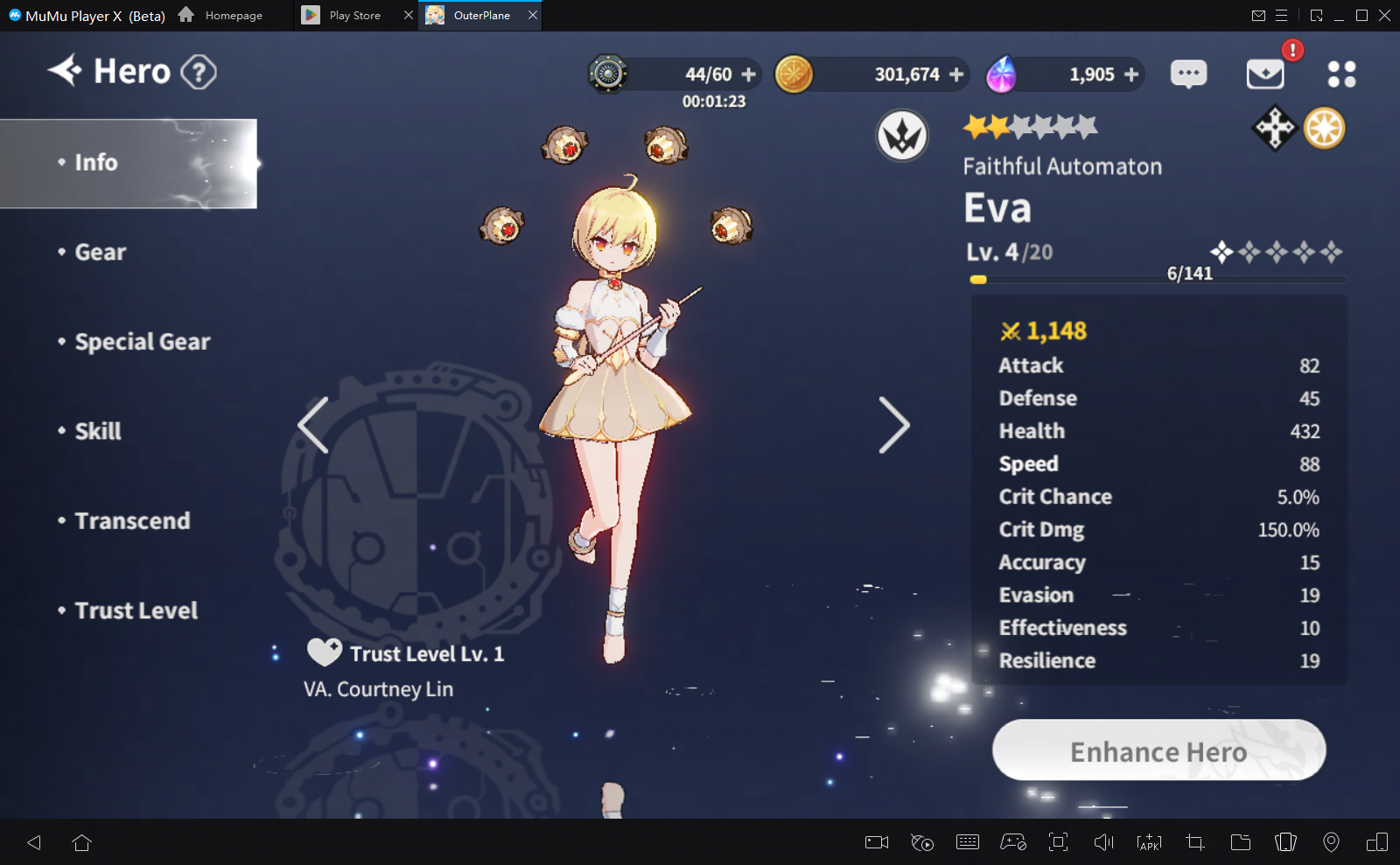
In this section, players will find different ways to power up their hero. Here is a brief explanation of all the systems present in Outerplane to strengthen your heroes:
- Leveling Up: increase base stats of heroes including Attack, Defense, and Health. go to the Heroes tab and select any hero you want to level. Go to the Info tab, and click on the Enhance Hero option. Players will see an interface where they can tap or hold the food materials to increase the level of the hero.
- Transcend: increasing the Star level of heroes. Players will require 150 fragments of the same hero to be able to transcend them. Each transcend phase increases their base stats greatly while also increasing their level cap. A single duplicate summon of the hero yields only 50 fragments.
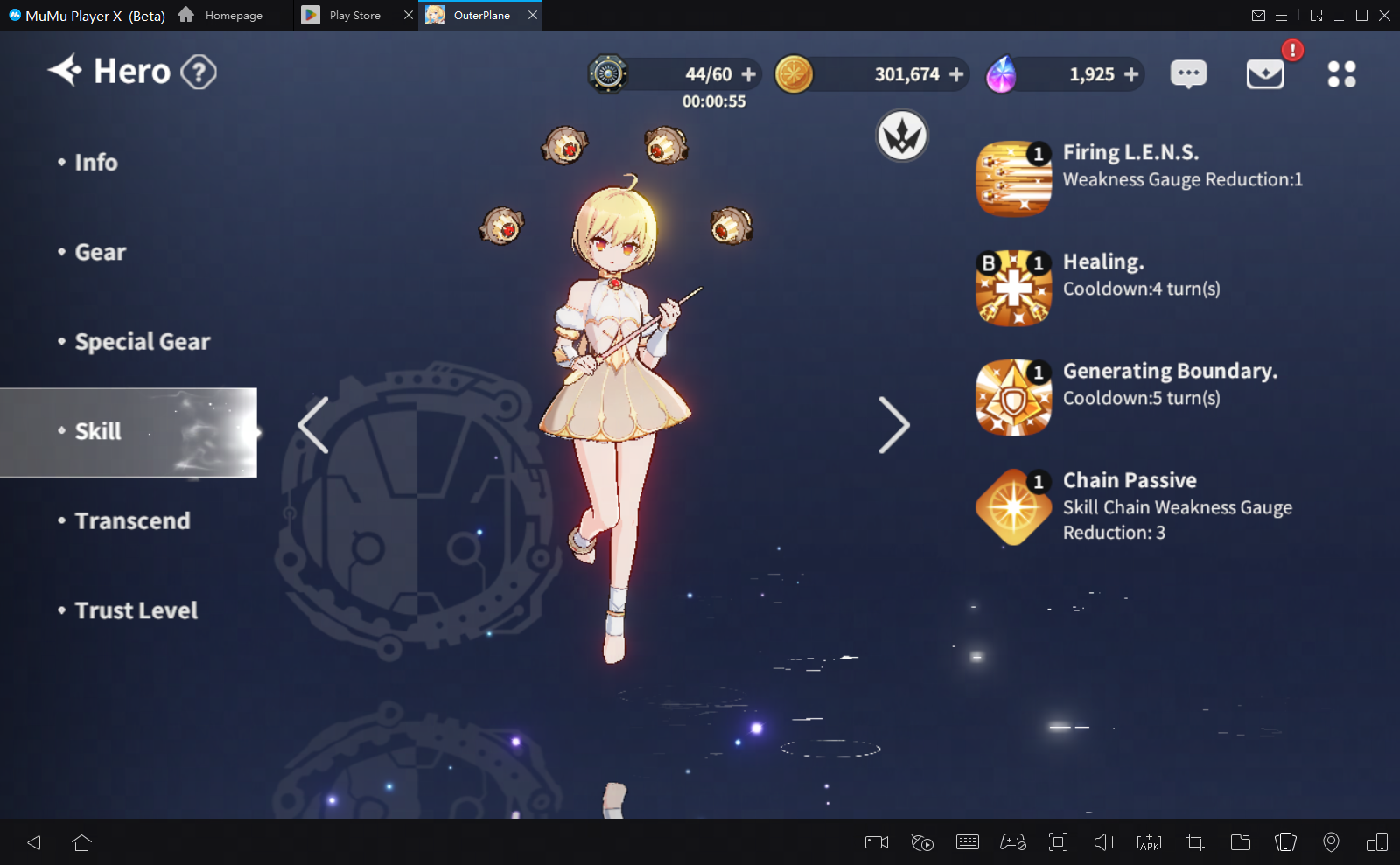
- Skills: skills of all heroes can be upgraded as well to provide some better damage multipliers and improve their overall utility of them. Skills of heroes in Outerplane can be enhanced according to the current level of the hero. Skilling up heroes takes Basic Skill Manuals and Gold.
- Gear: provide a massive boost to the hero's power ratings. Consider them like Equipments in other games where equipping certain number of the same set of gear provides your heroes with specific skills. For example, the Attack Set allows heroes to gain flat 30% Attack if players equip 4 gears of the Attack set.
5. Missions and Rewards
Missions are one of the most consistent sources of rewards given to players on a daily and weekly basis, respectively. Daily Missions and Weekly Missions are the main source of guaranteed rewards that every player should strive to complete and reap their rewards. We will be taking an in-depth look at some of the daily and weekly missions that can be completed each day and week, respectively. These missions reset according to the server time. In this section, we will look at the following different types of missions:
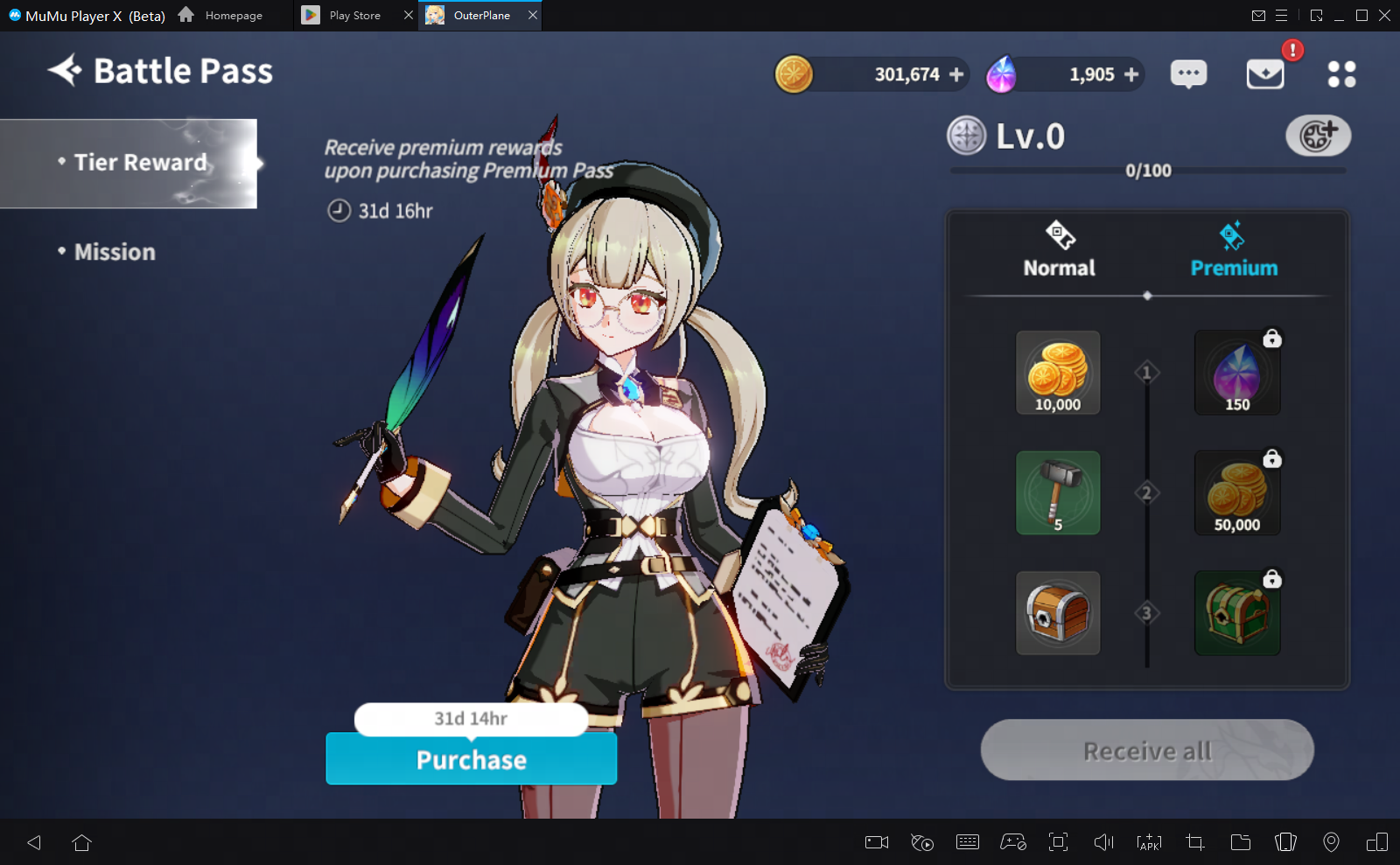
Final Thoughts
We recommend playing Outerplane on your PC using MuMu Player with a keyboard and mouse for the best performance.
